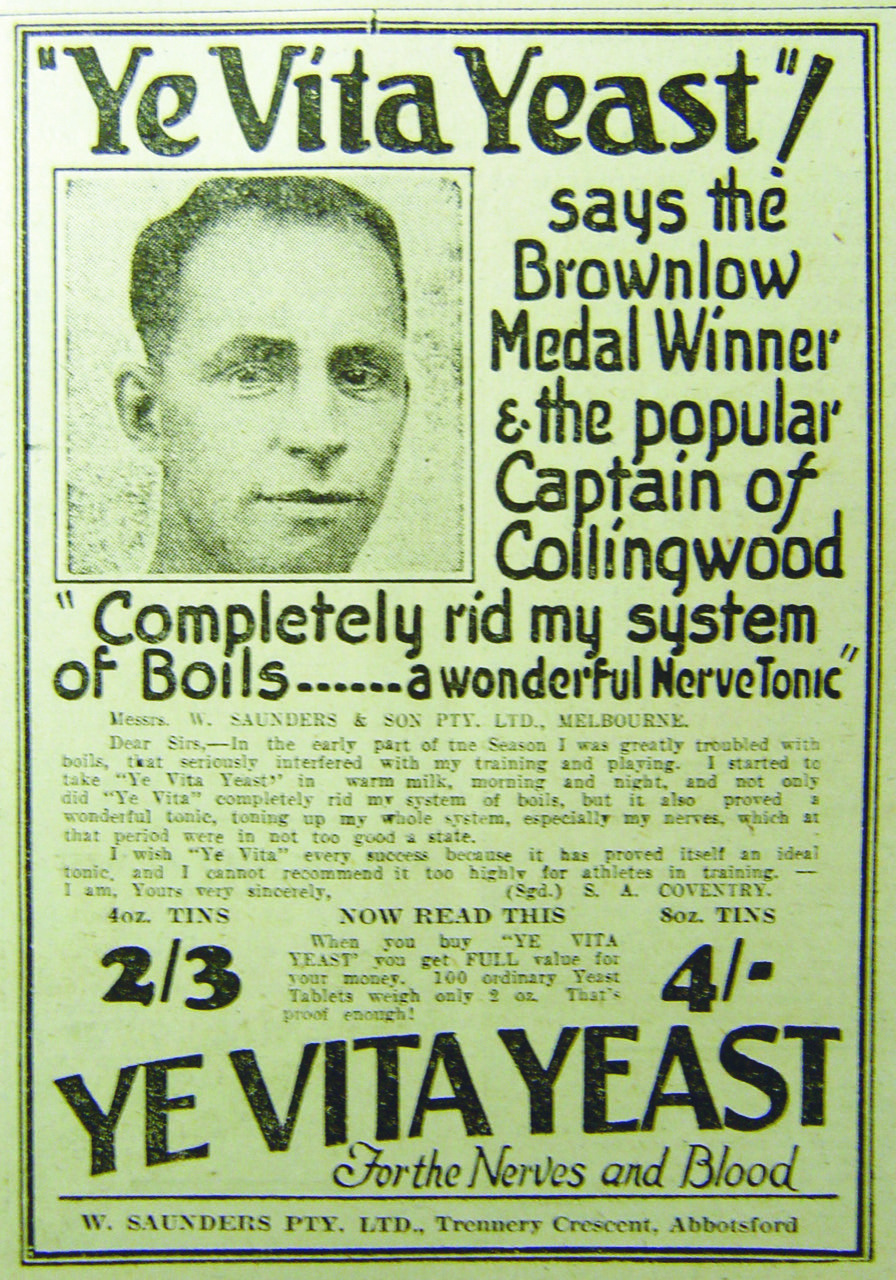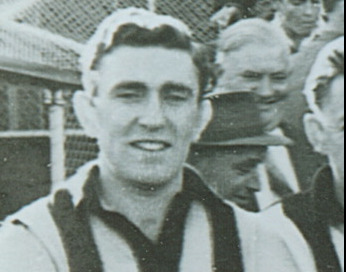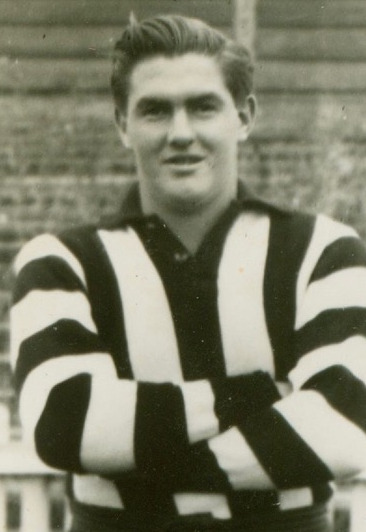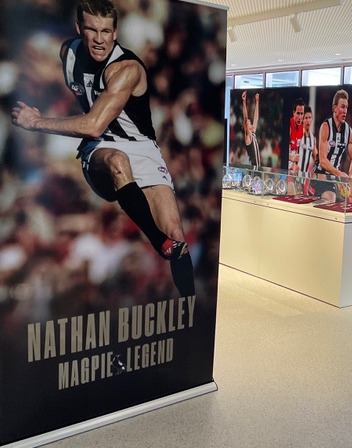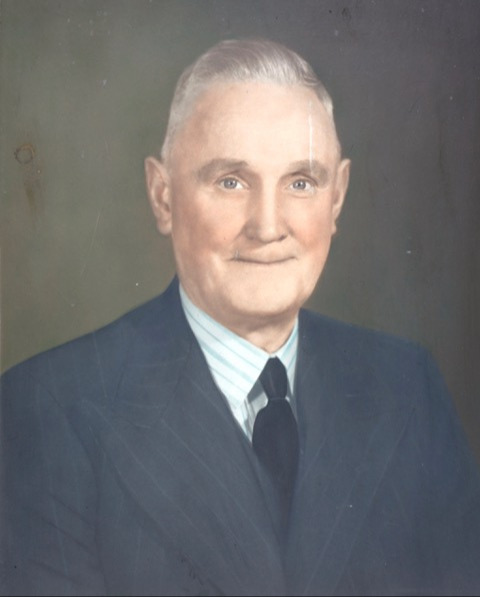When Bob Sause wasn't marking or kicking a football, he could often be found repairing one.
Sause started his working life as a bootmaker at Turner's Boot Shop in Gisborne, but his skills with leather extended far beyond humble footwear. As a result, he often found himself repairing footies that had been kicked to death by his kids and, later on, grandkids. He was always happy to help, and usually returned the goods with a friendly warning, 'Now son, don't go kicking the footy on the road.' Those warnings were almost always ignored, and Bob would have to do further repairs later. He always obliged.
But it was for his skills with a football, rather than repairing one, that Robert Sauce won renown outside his family. He was born in New Gisborne in 1875, one of only two of his parents' four children to make it to adulthood. By his teens he was highly regarded in his local area as a footballer, cricketer and runner. He started the 1894 season in the red, white and blue of Gisborne, but a string of impressive performances brought him to Collingwood's attention, and the 19-year-old made his way to Victoria Park to debut against Port Melbourne in Round 7.
He was a strapping young man even then, tall and well built. He kicked a goal on debut, two more in his third game and made a decent overall impression on many of the journalists who covered his early games.
The Sporting Judge described him as a "heavyweight who should help out in the ruck" and "a very good forward". "He is of good quality and when dished up by the Wood is a fine player," the paper said, unable to resist the urge to make a pun of his surname, which was regularly mis-spelled as 'Sauce'.
The Australasian noted that he "improves with experience." The Argus wrote that his "springy schoolboy style" was always pleasing. "He is active, cool and can kick…he looks like making a footballer," wrote that paper's football writer after his first game. "He got one first rate goal – the ball shooting from his toe like one of the homing pigeons that boy fanciers turn loose whenever a goal is kicked, went close to a second and was specially cheered for his play." "Sause... made a good beginning, as he kicked a goal under great difficulties," added the Clifton Hill Tribune after his debut game.
Despite the encouraging early reviews from his time at Victoria Park, Sause returned to Gisborne at the end of 1894, having played 10 games, and didn't return. Instead he became a major sporting figure in his home town, captaining the footy team, setting athletic records in the Christmas Festival races at Gisborne and starring at cricket, where he regularly took bags of wickets and once grabbed a catch described in the local paper as 'one of the finest ever seen on the local ground.' He was also handy at billiards and rifle shooting.
He gave up bootmaking and took a job with the Victorian Railways, where he stayed for the rest of his working life, even after he moved to Kensington in 1914. He was head porter at the local Gisborne railway station when he married in 1902. He had five children, but two of his daughters died at very young ages and further tragedy befell the family when his second son, Thomas, died at age 26 in a farm accident.
Throughout, Bob Sause remained composed and quietly spoken. He loved reading and opera (he was a big fan of Dame Nellie Melba, among others), and liked nothing better than sitting in his chair reading or listening to the gramophone. He was dearly loved by his grandchildren, as well as respected: as is so often the case with those given to few words, people tended to listen when he spoke.
Bob Sause didn't talk much about his time at Collingwood: he wasn't the kind of man to boast about his achievements. But family members say he was proud to have played for the Pies, and he imbued the family with a passion for the club that remains in his descendants to this day. Perhaps that is the greatest tribute Bob Sause could have wished for.
- Michael Roberts


